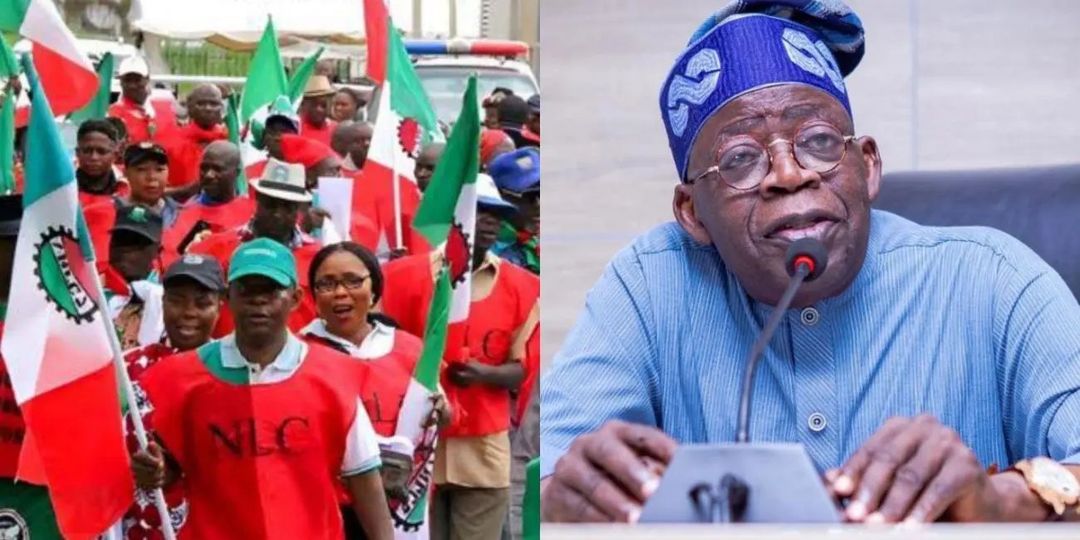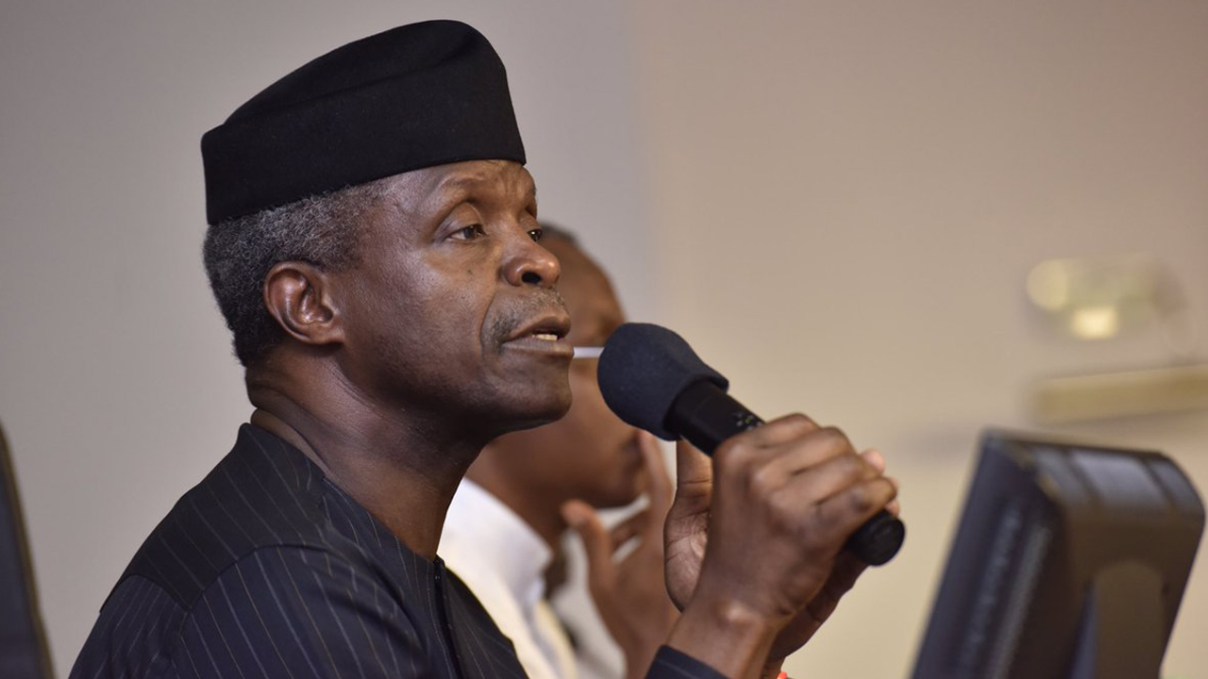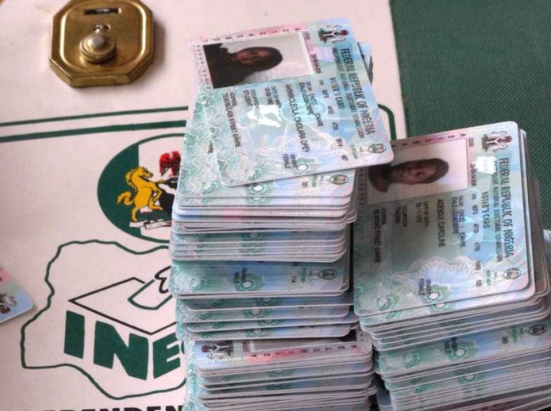Labour accepts FG offer of N70,000 as new Minimum wage

..Says promise of a three-year wage review by FG particularly appealed to workers
…Why I had to intervene in the negotiations-Tinubu
By Ukpono Ukpong & Ihesiulo Grace
After several months of intense negotiations, President Bola Tinubu and the two major labour centres in Nigeria, the Nigeria Labour Congress (NLC) and Trade Union Congress (TUC), have agreed on a new minimum wage of N70,000.
This development came as a result of a series of consultative meetings involving governors, the organised private sector, and labour bureaucrats.
With this agreement, President Tinubu is set to forward a wage review bill to the National Assembly in the coming days, paving the way for its implementation. The acceptance of the new wage by the labour unions was influenced by President Tinubu’s promise to review wages every three years, as opposed to the previous five-year interval.
During the meeting with the leadership of the Nigeria Labour Congress (NLC) and that of the Trade Union Congress (TUC) at the Presidential Villa, on Thursday, President Tinubu said he had to intervene in the negotiations, knowing the economic challenges faced by many Nigerians, and the need to provide urgent succour.
READ ALSO: Tinubu Approves N70,000 Minimum Wage
“I have heard all your presentations. You came here with the intention to get something on behalf of your members. It has been tough globally. And if you review my track record, I have never been found wanting in ameliorating the problems of workers. I belong to the people and to all of you in leadership. Without you, this job is not interesting.
“You challenged the thinking faculty of leadership, and we have reviewed the position. I have consulted widely, and when the tripartite committee submitted their reports, I reviewed them again and started to think and rethink.
“Last week, I brought the workload to you because we have a timeline. We have a problem, and we recognise that you have a problem too. We are in the same economy. We are in the same country. We may have different rooms, different addresses, and different houses; we are just members of one family that must care for each other.
“We must look at the parameters of things. Here, I have a speed limit, and I must pay attention to traffic warnings; slippery when wet, curved roads, and be careful not to have an accident. That is why I went as far as having this meeting today.
“We are driving this economy together. Let us look at the tenure of review. Let us agree on that, and affirm three years. Two years is too short. We affirm three years. We will review.
“I am going to move from the tripartite committee. I am going to edge a little bit forward, looking at the review that we have done. Yes, no one in the federal establishment should earn less than N70,000. So, we are going to benchmark at N70,000,’’ the President said.
President Tinubu explained that renewing the hope of Nigerians extends to providing infrastructure that will improve their livelihoods and create an inclusive economy that all can participate and benefit.
The President said the government was committed to reducing the cost of transportation with the introduction of Compressed Natural Gas-powered buses, which will be cheaper and efficient, and also assured the labour unions of providing buses that will be deployed across the country.
President Tinubu also said the entitlements of members of the Senior Staff Association of Nigerian Universities (SSANU) and the Non-Academic Staff Union of Universities and Allied Institutions (NASU) will be considered, urging the Ministries of Finance, and Budget & Economic Planning to look at the possibilities of clearing the backlog.
At the meeting, the Secretary to the Government of the Federation, Senator George Akume, thanked the President for his consideration of issues as the “Father of the Nation’’ and scheduling two meetings to resolve the initial impasse.
“Mr. President, at the tripartite meeting, and the resolutions of the government, Organized Private Sector and labour unions; we were all united as one family to promote and grow our economy, and deepen our democracy, by implication to the benefit of all. Basically, that is what we are saying today. We have a listening President here,’’ the Secretary to the Government of the Federation said.
Addressing State House Correspondents after the meeting, the Minister of Information and National Orientation, Mohammed Idris, expressed joy at the agreement, describing it as a happy day for Nigeria.
“You recall that last week we had a meeting here, and the organized private sector and sub-nationals also held their meetings with Mr. President following the submission of the tripartite agreement,” Idris stated.
“Labour had a meeting with Mr. President last week and requested a week to consult further. They have now returned, and we have reached an agreement,” he continued. “We are happy to announce today that both the federal government and organized labour have agreed on increasing the minimum wage from N62,000 to N70,000. This new wage will be presented to the National Assembly for legislation.”
Idris also highlighted additional measures promised by the President. “Mr. President has assured massive investments in infrastructure and renewable energy. More funds will be allocated to acquiring CNG buses, making Nigeria more CNG compliant. The issues concerning SSANU and NASU will also be addressed,” he noted.
The Minister thanked the organised labour for their patriotism and cooperation. “They recognised the federal government’s efforts in ensuring local government autonomy and aligning with the government’s vision. They came here out of patriotism to ensure Nigeria remains united and prosperous,” he said.
Minister of State for Labour and Employment, Nkeiruka Onyejiocha, echoed Idris’ sentiments, emphasising President Tinubu’s commitment.
She said that “the President instructed the Minister of Finance and Coordinating Minister for the Economy to address the issues of SSANU and NASU, ensuring their withheld salaries are paid. The ‘no work, no pay’ issue must be resolved.”
According to the NLC President, Joe Ajaero, the promise of a three-year wage review was what particularly appealed to the workers.
“Rather than waiting five years for a review, we can now negotiate even twice within that period. This was a key reason we reached an agreement today,” he explained.
Ajaero also brought up other concerns during the negotiations, including the treatment of SSANU and NASU by the FCT Police Commissioner. He reported that President Tinubu had directed relevant agencies to address these issues, ensuring payment to university workers.
“While the promise of CNG buses and other incentives is welcome, we approach this decision with mixed feelings due to the current economic situation. However, moving from N62,000 to N70,000 with the promise of future negotiations is a positive step,” Ajaero stated. “We’ll take this back to our constituency for their input.”
TUC President, Festus Osifo, emphasised the importance of the wage review cycle. “The President’s announcement of N70,000 and the plan to send the bill to the National Assembly next week is significant. We’ve been pushing for a three-year review cycle because economic conditions change rapidly.”
Osifo appreciated the President’s responsiveness to labour’s concerns. “We made a case for SSANU and NASU, urging the President to handle the situation compassionately to avoid further disruptions in universities. This affects our children and the nation’s future.”
He added: “The President made a pronouncement of N70,000. By next week, they should put finishing touches to the bill and transmit it to the National Assembly. This assurance is crucial for organised labour, as it ensures regular reviews reflecting the fast-changing economic conditions.”
“The caveat that the next review will be in three years is a significant win for us. It means we won’t have to wait too long to address any economic shifts that impact workers’ livelihoods,” Osifo continued.
“This agreement reflects a shared commitment to improving workers’ welfare and the overall economy,” the TUC president added.
The agreement between President Tinubu and labour leaders represents a critical step towards improving workers’ welfare while ensuring economic stability. The promise of regular wage reviews and addressing specific union issues reflects a commitment to responsive governance and collaborative problem-solving.
As the new minimum wage policy moves towards legislative approval and implementation, it underscores the importance of continuous dialogue and partnership between the government and labour organisations in fostering a prosperous and equitable Nigeria.








